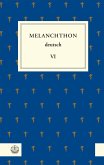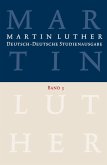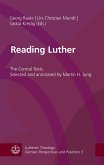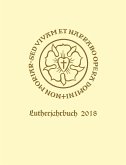Melanchthon formulierte nicht nur große Texte wie das Augsburger Bekenntnis. Auch mit seinen Kleinschriften trat er unermüdlich für die Sache der Reformation ein und pflegte damit Beziehungen zu Familie, Fürsten, Kollegen, Studenten und Gelehrten in seinem humanistisch-reformatorischen Netzwerk. Melanchthons zahlreiche Reden, Briefe, Bekanntmachungen, Widmungsvorreden, Gedichte, Gutachten, Zeugnisse und Gebete verdeutlichen, wie vielgestaltig und leidenschaftlich er philosophische und naturwissenschaftliche Themen wie auch reformatorische Kernanliegen vor Ort in Wittenberg, im Reich und in ganz Europa vermittelte und wie stark sein Denken und Handeln von Glauben und Frömmigkeit durchdrungen waren. Der Band gibt neue Einblicke in seine weitgespannte alltägliche Arbeit und seine Grundüberzeugungen.
[Melanchthon German VII: From Melanchthon's Everyday Life]Melanchthon not only formulated major texts such as the Augsburg Confession. He also tirelessly championed the cause of the Reformation with his smaller writings, thus cultivating relationships with family, princes, colleagues, students, and scholars in his network. Melanchthon's numerous speeches, letters, announcements, dedicatory prefaces, poems, expert opinions, testimonies, and prayers illustrate how multifaceted and passionate he was in communicating philosophical and scientific topics as well as core Reformation concerns locally in Wittenberg, in the empire, and throughout Europe, and how strongly his thoughts and actions were imbued with faith and piety. This volume provides new insights into his wide-ranging everyday work and his convictions.
[Melanchthon German VII: From Melanchthon's Everyday Life]Melanchthon not only formulated major texts such as the Augsburg Confession. He also tirelessly championed the cause of the Reformation with his smaller writings, thus cultivating relationships with family, princes, colleagues, students, and scholars in his network. Melanchthon's numerous speeches, letters, announcements, dedicatory prefaces, poems, expert opinions, testimonies, and prayers illustrate how multifaceted and passionate he was in communicating philosophical and scientific topics as well as core Reformation concerns locally in Wittenberg, in the empire, and throughout Europe, and how strongly his thoughts and actions were imbued with faith and piety. This volume provides new insights into his wide-ranging everyday work and his convictions.








